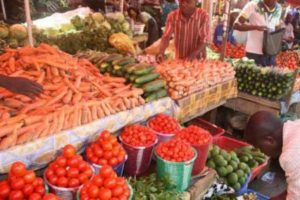
A group of Non-Governmental Organisations (NGOs) has called on government at all levels to invest more in agriculture to enhance food production.
This is contained in a statement issued on Monday by Gloria Okon, on behalf of the group, and made available to newsmen in Katsina.
The NGOs included Home of Mother Earth Foundation (HOMEF), Women and Children Life Advancement Initiative (WACLAI), Green Alliance Nigeria (GAN) and Safe Community Initiative (SCI), among others.
“We should invest in agricultural systems such as agro-ecology, which promotes soil health and biodiversity and ensure collaborative research and innovations with farmers.
“We should address the root challenges of food production, including those of pests and diseases.
“The government should support agro-ecology and provide the needed infrastructure, credit schemes and extension services to enable farmers to produce food optimally,” she said
READ ALSO: 140 youths to benefit from FG’s digital Agric training
Okon urged the government to nullify the approval for the importation of genetically modified maize, beans and cotton into the country.
“Nigeria does not need such crops, research has shown that normal crops give more yields than genetically modified ones,” she said.
She noted that some genetically modified crops might have implications on human and environmental health, as well as on the livelihood of small-scale farmers.
Okon also urged the government to ban the use of toxic agrochemicals, especially glyphosate which, according to her, is carcinogenic and has harmful effects on the entire ecosystem.

